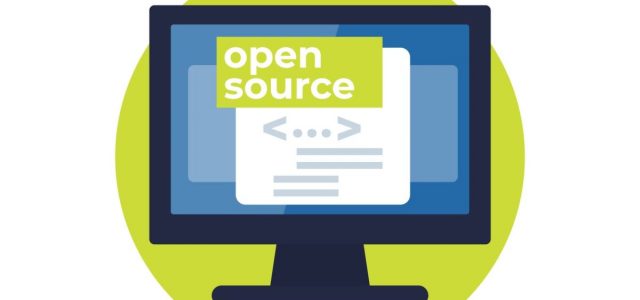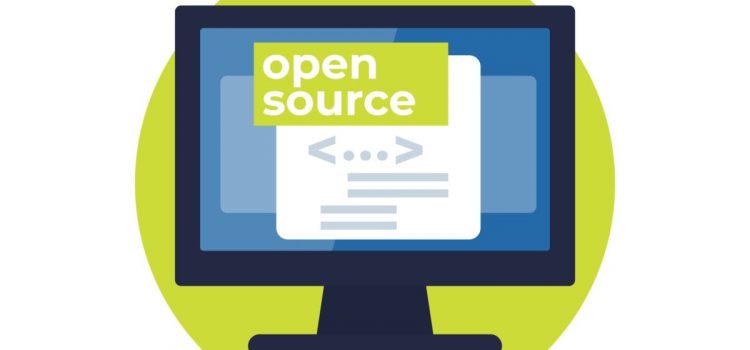


Today, open-source software underpins almost everything: A whopping 97% of applications leverage open-source code, and 90% of companies are applying or using it in some way.
GitHub alone had 413 million open-source software (OSS) contributions in 2022.
“Open-source software is the foundation of 99% of the world’s software,” said Martin Woodward, VP of developer relations at GitHub. “There are a number of benefits to open source, from providing an environment to work fast and flexibly, to enabling collaboration from developers around the world. No single person or team can make the progress that we can all make together.”
To this point, GitHub this week released its new Octoverse 2022 report, which highlights numerous important statistics, insights and evolutions across the open-source community.
“As the home for all developers, we have the ability and responsibility to showcase how the open-source ecosystem is evolving and its impact on developers, communities, organizations and companies around the world,” said Woodward.
More open-source engagement, support
The annual report was first released 10 years ago to celebrate 2.8 million people on GitHub; back then, businesses were only using OSS to run web servers, and Kubernetes and Docker had yet to be released.
Now? There are more than 94 million developers on GitHub, and 90% of Fortune 100 companies use the platform.
The annual report analyzes data from millions of developers and repositories to explore open-source software and determine key trends shaping software development, explained Woodward. This year’s report, which focuses on the relationship between OSS and business, draws on anonymized user and product data taken from GitHub between October 1, 2021, through September 30, 2022.
Some of the biggest OSS projects on GitHub in 2022 were commercially-backed (including microsoft/vscode, flutter/flutter, vercel/next.js).
However, one of the most popular projects on GitHub is home-assistant/core (a home automation project), which saw significant growth over the last year. Also, there was a notable uptick in contributors to the access management project keycloak/keycloak, commonly used to enable single sign-on, login via a social media account, and two-factor authentication in mobile and desktop applications.
And, digital art generation engine HashLips/hashlips_art_engine, and NFT tooling project metaplex-foundation/metaplex also both saw significant growth.
Organizations increasingly involved
Another key insight from the report: Organizations are increasingly recognizing how critical OSS is — and are actively taking stake in it.
GitHub reports that more enterprises are creating new OSS communities, and 30% of Fortune 100 companies have open-source program offices (OSPO) to coordinate OSS strategies. Also, half of first-time GitHub contributors work on commercially-backed projects.
“More and more companies are participating in open-source projects,” said Woodward.
Some of the biggest and most popular open-source projects on GitHub are commercially backed, he pointed out. These companies, in turn, are creating new OSS communities, signaling their broader impact on the open-source ecosystem.
“So that was super interesting and something we’ll continue to see more of,” said Woodward.
Ashley Wolf, who leads the OSPO at GitHub, also commented that, “when more companies can adopt OSPOs, more people can engage in and sustain open source. And that’s a benefit to everyone.”
Billions of developers, contributions, projects
The report found continued, significant growth across the board:
- GitHub has 94 million developers and more than 85.7 million new repositories.
- There are more than 3.5 billion total contributions to all projects on GitHub.
- 20.5 million new developers joined GitHub in 2022, with some of the largest increases coming from India, China and Brazil. On the other hand, the two places where developer communities didn’t grow in 2022 were Antarctica (there are still almost 20 developers there, though, the company reports) and Norfolk Island (an Australian island in the South Pacific Ocean with a population around 1,750).
- 85 million new projects were started globally in GitHub in 2022.
- 263 million automated jobs run on GitHub Actions every month, with more than 41 million build minutes a day.
Speaking to this continued adoption and use, Woodward said: “We take being the home of open source seriously.”
This goes from improving productivity with Copilot and Codespaces, to keeping software secure with Dependabot and code scanning, he said.
“Fundamentally, we are trying to expand who can become a developer — no matter where they live, what their background is, or what their skills are,” said Woodward. “Continued growth across the GitHub platform lays testament to that.”
JavaScript still reigns supreme
Meanwhile, there is an increase in infrastructure-as-code (IaC), the practice of managing and provisioning computer data centers through machine-readable definition files (rather than physical hardware configuration or interactive configuration tools).
And, while developers used almost 500 primary languages to build software on GitHub, JavaScript holds as No. 1 most used. This is followed by Python, which increased by 22.5%, then Java and TypeScript.
“After nearly 30 years of Java, you might expect the language to be showing some signs of wear and tear,” GitHub’s ReadME Project commented in the report. “But nothing could be further from the truth.”
AI enabling open-source developers
Not surprisingly, artificial intelligence (AI) is speeding up coding and improving developer experience, GitHub reports. Of developers surveyed about their experiences with GitHub Copilot (a cloud-based AI tool developed with GitHub and OpenAI):
- 88% said they were more productive
- 59% were less frustrated when coding
- 88% reported faster completion
- 96% were faster with repetitive tasks
- 77% spent less time searching
- 87% spent less mental effort on repetitive tasks
Securing the supply chain, supporting citizen developers
Looking ahead, securing the supply chain will be of critical importance, GitHub says. The IBM 2022 Cost of a Data Breach Report revealed that nearly one-fifth of organizations were breached due to a software supply chain compromise.
Expect a greater commitment from companies, developers and governments in securing OSS, GitHub says. The company also anticipates more advances in security-alerting tools with threat-detection capabilities, as well as a focus on building more secure code from the very start. Also, there will undoubtedly be additional policy formation around OSS.
Equally importantly, the OSS community is waking up to the fact that the OSS contributions that they financially benefit from are the result of the efforts of citizen developers.
While enterprises are offering financial support to open-source foundations and sponsoring conferences, financial support doesn’t always make its way to in-the-trenches developers, wrote Jessica Lord, GitHub Sponsors product lead.
“The open source ecosystem is still trying to secure supply chains — and open source sustainability is far from being solved,” she wrote.
To help address this issue, in 2019, GitHub launched GitHub Sponsors to offer users a direct way to financially support OSS maintainers and projects. Also, its Sponsors for Companies program, currently in beta, makes it easier for companies to give back at scale.
These and other developments are promising, as “crucial parts of the open-source infrastructure are maintained by a few underpaid, overworked individuals that often do it for free,” commented Wolfgang Gehring, FOSS Ambassador at the Mercedes-Benz Tech Institute. “And that isn’t right.”
VentureBeat’s mission is to be a digital town square for technical decision-makers to gain knowledge about transformative enterprise technology and transact. Discover our Briefings.
